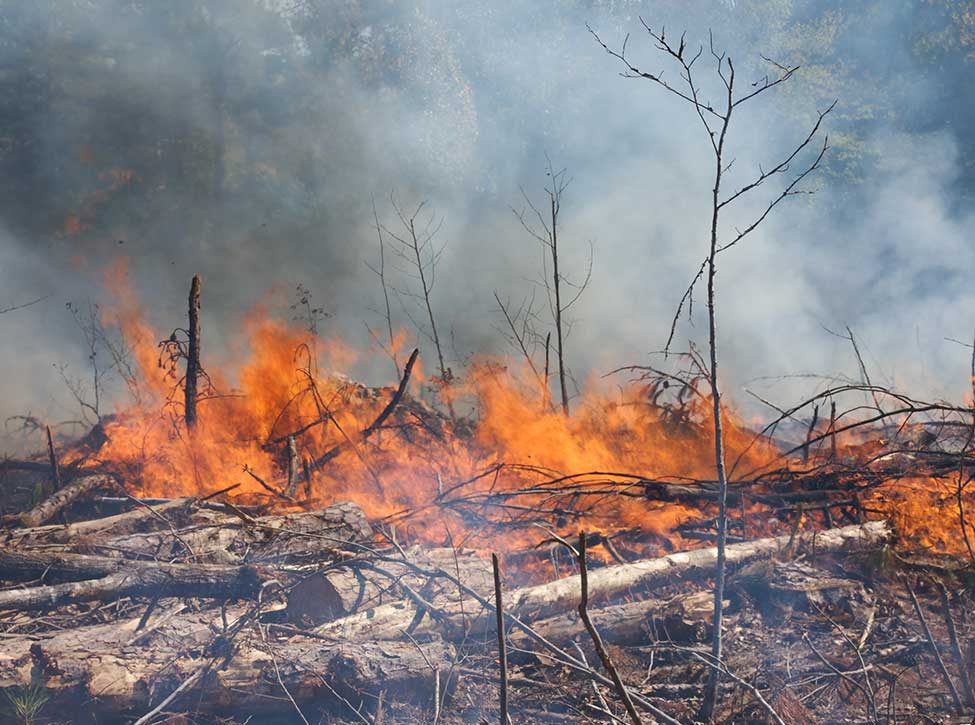Environmental Speaker Series
September 23, October 28 and November 25
Join Brock University and Niagara Parks for this free, interactive speaker series discussing the importance of Environmental Stewardship in the Niagara Region and Ontario. Hear from fascinating keynote speakers across three sessions.
All sessions begin at 7 p.m. This online series is accessible from any computer or mobile device.

September 23, 7 p.m. Environmental stewardship in Niagara
Since its founding in 1885, Niagara Parks has served a mandate that includes the preservation of natural habitat along the Niagara River corridor from Lake Erie to Lake Ontario. Today, Niagara Parks’ environmental stewardship mandate is at the very centre of its mission as the Commission works to protect, conserve and promote the natural and cultural heritage of the Niagara River corridor.
Join Niagara Parks’ Ellen Savoia, Senior Manager of Environmental Planning, and Corey Burant, Project Manager of Forest Health, as they discuss environmental stewardship in the Niagara Parks with Ryan Plummer, Professor and Director of the Environmental Sustainability Research Centre at Brock University.
You'll also hear from Brock University Masters student Brooke Kapeller discussing her research topic "Exploring environmental stewardship in the Niagara Region of Canada: How do elements of environmental stewardship relate to success?"
This thesis research focuses on understanding local environmental stewardship efforts. Specifically, the investigation sought to illuminate elements of environmental stewardship initiatives and factors making for success.
Ellen Savoia Keynote Speaker, Niagara Parks
Ellen was born and raised in the Lheidli T’enneh First Nation’s territory in British Columbia’s rural northern interior. Growing up in this spectacular place sparked a lifelong interest in our environment. With an academic background in environmental studies as well as landscape architecture, Ellen’s work as a registered professional planner is focused on public land use and environmental policy. In her role with Niagara Parks, Ellen leads the Environmental Planning team overseeing the environmental stewardship of the 1,325 hectares of Niagara Parks lands. She spends much of her recreation time outdoors enjoying hiking and gardening.
Corey Burant Keynote Speaker, Niagara Parks
Since 2005, Corey Burant has turned his love of the outdoors into a successful career as a wildlife ecologist. He has worked with numerous government agencies, organizations, educational institutions, and industry partners, acquiring millions of dollars in funding support for these initiatives. In January 2012, Corey joined Niagara Parks, contributing to its mandate of protecting the natural heritage of the Niagara River corridor. In his current role as project manager of forest health, Corey oversees various wildlife conservation and eco-tourism related initiatives, including the sustainable management of Niagara Park’s natural areas, trails, species at risk, and aquatic habitats.
Ryan Plummer Keynote Speaker, Brock University
Ryan Plummer is Professor and Director of the Environmental Sustainability Research Centre at Brock University. He is also presently an Adjunct Professor in the Sustainability Research Centre at the University of the Sunshine Coast (Australia) and Adjunct Faculty in the Department of Environment and Resource Studies at the University of Waterloo (Canada). His research concerns the human-environment relationship - a subject on which he has published extensively (100+ peer reviewed journal articles). He is recipient of a Chancellor’s Chair for Research Excellence and was identified in the world’s list of most impactful researchers in 2017.
October 28, 7 p.m. Ecosystem restoration challenges faced by Parks Canada
Parks Canada’s Tammy Dobbie and Andrew Laforet discuss Parks Canada's habitat restoration work and the science behind how the health of our natural areas is measured. Then, hear about methods used at Point Pelee National Park, such as the use of prescribed fire to mimic natural disturbances in savannah habitat, as well as targeted invasive species removal in the park’s marsh.
You'll also hear from Brock University Masters student Angela Mallett discussing her research topic "Understanding Perceptions of the State of the Environment in Relation to Ecological Measures".
Angela's research was conducted at the Niagara Glen and involved an ecological integrity assessment as well as surveys administered to several groups on their perceptions of the state of the environment.

Tammie Dobbie Keynote Speaker, Parks Canada
Tammy Dobbie started working for Parks Canada as a Student Park Interpreter just over 30 years ago, while completing a degree in ecology and botany at the University of Guelph. Just after graduation from teacher’s college, she found a year-round job at Point Pelee National Park and held a number of positions, including Park Warden before becoming the Park Ecologist in 2005. Tammy has since lead a number of habitat conservation and restoration projects and most recently, has been working on landscape connectivity, climate change adaptation and species at risk recovery initiatives.
Andrew Laforet Keynote Speaker, Parks Canada
Andrew Laforet began at Parks Canada as a student interpreter in 2012. Since then he’s moved into other roles such as the Product Development Officer and the Interpretation Coordinator for Point Pelee National Park. These positions brought him into the world of resource conservation, participating in a multitude of resource conservation programs at the park. Most recently, Andrew has taken on the role of Project Coordinator for the resource conservation department at Point Pelee. He currently leads two projects, including the park’s fire program and the marsh restoration project.
November 25, 7 p.m. The evolution of the International Joint Commission
The Boundary Waters Treaty of 1909 established the International Joint Commission to oversee issues pertaining to shared waters across Canada and the U.S., including the Laurentian Great Lakes. The Niagara Peninusula Conservation Authority's Natalie Green joins the International Joint Commission's Rej Bejankiwar in discussing the evolution of the commission through the treaty, historic pollution problems that led to the creation of the Canada-U.S. Great Lakes Water Quality Agreement, the need to clean-up specific Great Lakes’ degraded locations, and what collaborative actions are being taken to improve these sites—including the Niagara River.
You'll also hear from Brock University undergraduate student Kassie Burns discussing her research topic "The UN Sustainable Development Goals: From Local to Global".
Kassie will speak to an online toolbox that she assisted in creating where the Brock community can access information about all 17 United Nations Sustainable Development Goals and how they are being tackled internationally.

Natalie Green Keynote Speaker, Niagara Peninsula Conservation Authority
A Niagara Peninsula Conservation Authority Project Manager since 2017, Natalie Green is responsible for leading and facilitating the implementation of activities to improve the Niagara River ecosystem. Prior to her work in Niagara, Natalie coordinated remediation and outreach efforts for the Detroit River—another Great Lakes’ binational Area of Concern. More recently, Natalie has been tasked with leading the NPCA’s strategic planning process with a cross-organizational team of staff. Natalie has a Master of Science degree in Biology, is formally trained as an educator, and is a certified Project Management Professional.
Raj Bejankiwar Keynote Speaker, International Joint Commission
Raj Bejankiwar is a physical scientist at the International Joint Commission. The IJC is guided by the Boundary Waters Treaty, signed by Canada and the United States in 1909, to resolve transboundary water issues. Raj spent over 22 years working in the field of environmental science & engineering and policy, including solid waste management, water and wastewater treatment technology, surface water and groundwater monitoring and modelling, drinking water source protection and nutrient management. At IJC, Raj’s key areas of focus include nutrient enrichment, Areas of Concerns, and indigenous engagement and collaboration in the Great Lakes basin.

 Close and
Close and